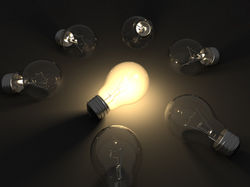 |  |  |
|---|
Business and Industry Services
Our objective for every client is to reduce energy usage through the implementation of a comprehensive, well-designed energy strategy. A comprehensive energy strategy involves not only energy saving technologies but a wide variety of sophisticated business management approaches and tools, such as an understanding of external social, political, economic issues and trends, financial evaluation, risk analysis, procurement strategies, advanced information technologies, and organizational change management. The scope of energy management should span the enterprise, across all operations and maintenance environments.
Phase I - Strategy
In the Strategy Phase, Warren Energy (WE) identifies the important business issues and elicits and refines the business requirements for the energy management initiative. Working jointly with the project team and key stakeholders, WE define a "future state" vision. The gap between the current state and future state provides the basis for understanding the sources of energy cost savings. Then, the business benefits are quantified and summarized and a business case is prepared. The Strategy Phase is completed when the business case is accepted by management and resources are approved for Phase II.

Phase II - Program Design

The Solution Design and Development Phase involves the creation of a comprehensive, holistic energy management solution. The primary outputs from this phase are detailed designs for the technical and business processes, pilot and prototype results (used to test and refine the solution designs), and detailed recommendations. WE’s objective during this phase is to identify the optimal mix of energy efficient systems and technologies. Our design goal is to minimize total lifecycle costs, including the initial capital and installation costs and ongoing energy and maintenance costs.
Phase III - Implementation

Phase III involves implementing the portfolio of energy efficiency ideas contained in the Phase II recommendations. Improvements include both technology upgrades/replacements and changes in business processes and practices. During this Phase, WE serve as a source of expertise to contractors. WE can guide them through any installation and start-up hurdles to avoid project setbacks and costly time delays. During the latter stages of the project, our engagement team will meet with the contractors and internal staff to ensure that the integrity of the system design has not been compromised.
Phase IV - Behavioral Improvements

Organizational change management activities are implemented during this phase.
These activities are typically quite varied and may involve job design/redesign, training, and the development of reward and recognition programs.
